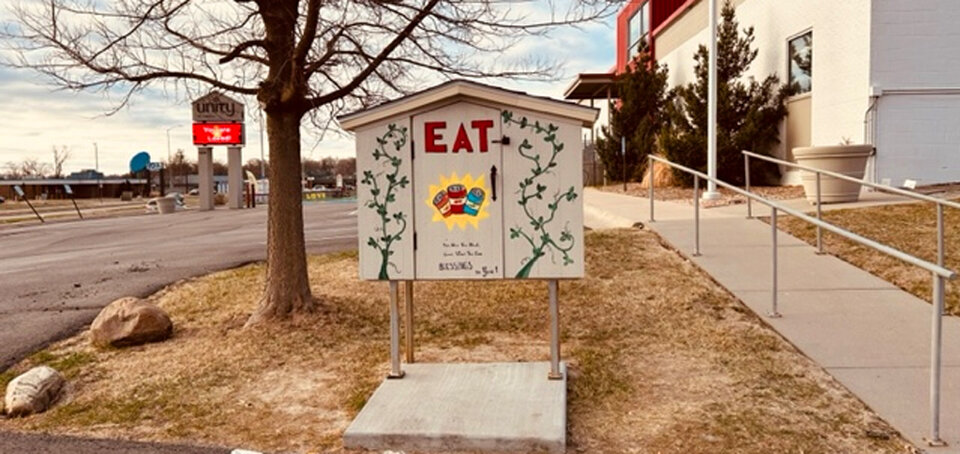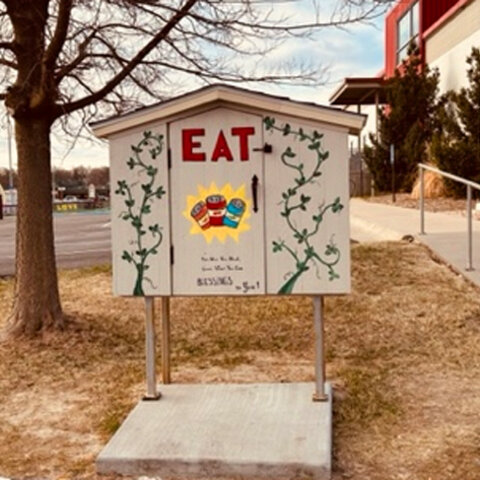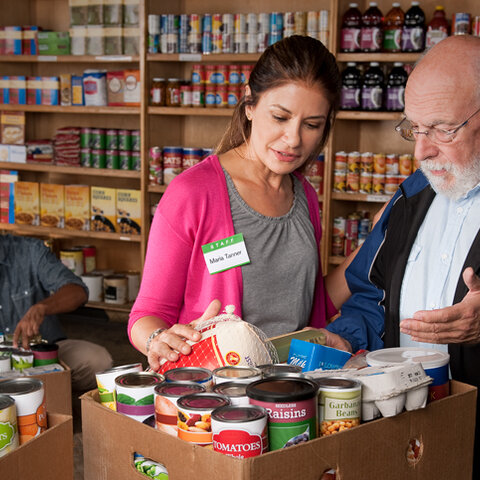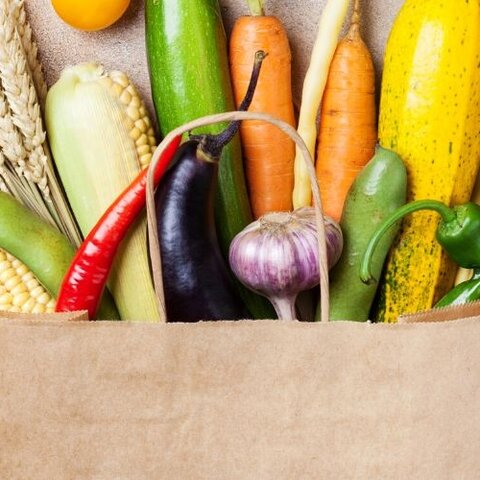
Little Free Pantries (LFP) are weather and animal-proof structures that store food and other items for those in need. They are accessible 24/7 and located in neighborhoods, typically in front yards or by sidewalks. LFP’s are built by and stocked by private citizens who want to help those in need in their community. How often each pantry is refilled is based on the person(s) stocking it.
According to The Little Free Pantries, these pantries are an easy way to help neighbors who need food, hygiene or paper items. They are a zero-barrier access point to food. LFP’s not only support neighbors who are facing food insecurity but also build micro-communities. These became highly popular during the pandemic and remain needed today.
The problem that arises with these types of pantries is that they are outside. A church or local food pantry is climate controlled and may have the ability to store perishable items that need refrigeration or freezing. Placing donations in a LFP requires a little more planning.
It is important to make the following considerations when stocking a LFP. Extreme heat and cold may decrease the shelf life of food and toiletry items and need to be rotated in and out if turnover is not quick. Canned and boxed liquids can freeze or explode in extreme heat or cold, so caution needs to be taken if offering these items. Items with chocolate may melt.
Items to stock in a LFP:
- Dry goods: oatmeal, macaroni and cheese, dried beans, rice and other whole grains, pasta, spices, popcorn, coffee, tea, boxed dry soups, sugar and flour
- Individually packaged snacks: boxes of raisins, granola bars, protein bars, fruit snacks, juices
- Food not requiring kitchen preparation: bread, nuts and seeds, dried fruits, granola, nut butters, cereal, applesauce, and pudding packs
- Toiletries: feminine hygiene products, toilet paper, facial tissue, soap, body wash, shampoo, conditioner, toothbrushes, toothpaste, deodorant
- Cleaning supplies: dish soap, laundry detergent, paper towels
- First aid items: mini first aid kits, bandages, topical antibiotics, anti-itch crème, hand sanitizer, sunscreen (non-aerosol), bug spray
- Additional items: diapers/wipes, bubbles, sidewalk chalk, small children’s books, garden seeds
Any foods that may freeze or burst with extremes of heat or cold may not be appropriate all year long, but safe at certain times. Baby food, cooking oil, canned goods, canned protein items, soups, pudding, juices, etc., are fine if the temperatures stay between 50-75 °F.
Fresh Produce
Fresh produce in the summer is appreciated, but special care must be maintained to keep it safe. Consider how warm the weather is and if the produce will sit in the sun. The temperature inside a small pantry may reach over 100 ºF during the day. Storing it off the ground outside the pantry in the shade and only leaving it out for short periods will help maintain the food safety and produce quality. Keeping it safe from animals needs to be considered also. It will need to be taken in at night.
Considerations for stocking a Little Food Pantry:
- What will the pantry hold?
- Who may be using it?
- What is the local weather like?
- How often will you stock it?
- How can we rotate items so they do not get old?
- How can we date mark when food is placed in the pantry?
What types of items should NOT be provided in the LFP?
- Perishable items that need refrigeration
- Expired food (past its best by date)
- Food with damaged packages
- Dented cans
- Bruised or damaged produce
- Food that is spoiled or moldy
- Home canned food products
- Opened or re-packaged foods (do not break bigger packages of food into smaller packages due to possible contamination)
If you do not want to build/maintain your own personal pantry, you can always donate to your local church or food bank. In regions where winters are below freezing, changing the food pantry into a book pantry is an alternative for the season.
Additional Resources:
- How to Build a Free Little Pantry, Free Pantry of Omaha
- Little Free Pantry Resources, Little Free Pantry
Sources:
Legal Guide to Food Recovery, University of Arkansas
Jensen, Jessica (2022). Donating to food pantries? Keep it safe, says K-State food safety specialist, Kansas State Research and Extension
Nwadike, L., Kansas State University. Donating Safe and Nutritious Food to Food Pantries and Soup Kitchens
This article was written in 2023 and peer-reviewed.


